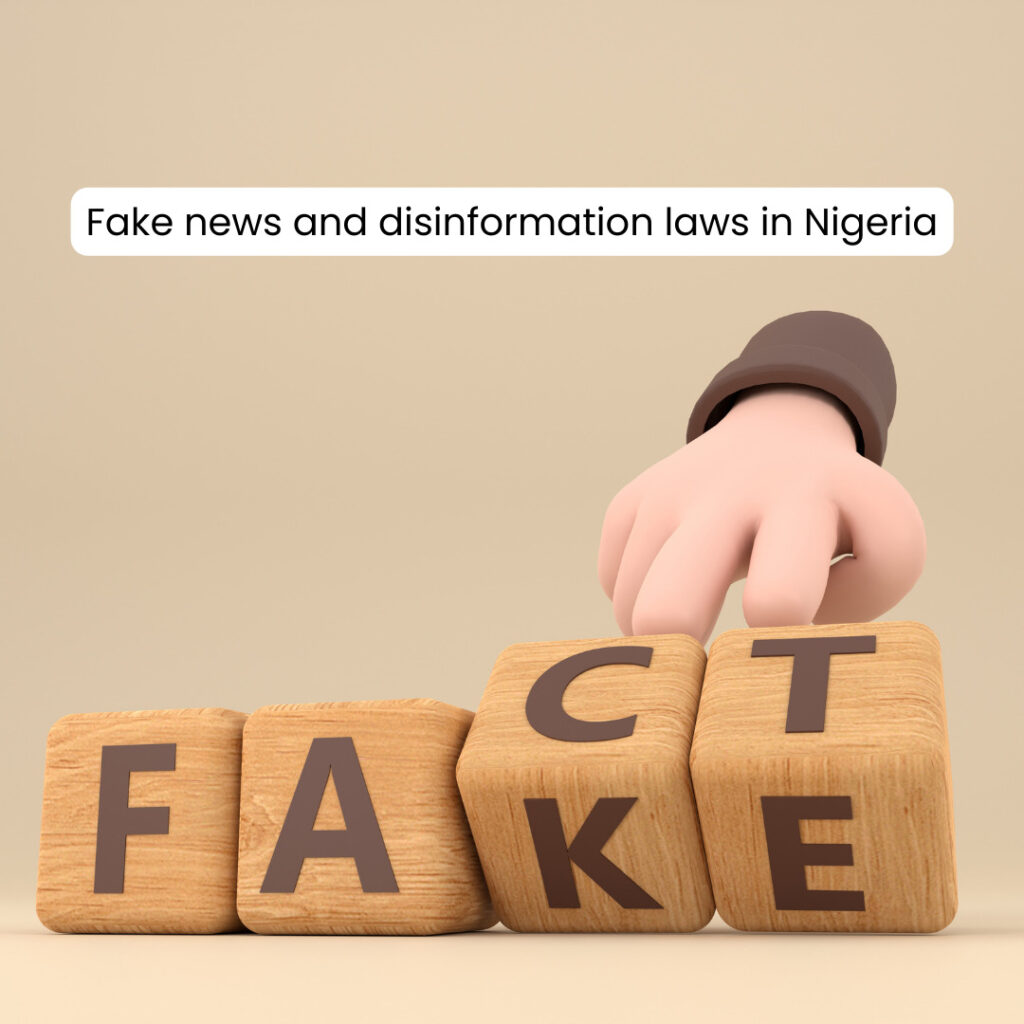Tackling the Epidemic: Fake News and Disinformation Laws in Nigeria
The proliferation of fake news and disinformation has emerged as a significant global concern in the digital age, impacting public opinion, undermining trust in institutions, and even posing threats to social stability. Nigeria, like many other nations, is not immune to this phenomenon. In response, the country has begun to address the challenge of fake news and disinformation through a combination of legal measures and awareness campaigns. In this article, we delve into the landscape of fake news and disinformation laws in Nigeria, examining their significance, challenges, and implications for media and society.
The Spread of Fake News and Disinformation
Fake news and disinformation involve the dissemination of false or misleading information with the intent to deceive or manipulate public perception. With the rise of social media and digital platforms, misinformation can spread rapidly, reaching a vast audience and shaping narratives on various subjects.
Significance of Laws Against Fake News and Disinformation
Nigeria recognizes the importance of addressing fake news and disinformation due to their potential impact on various aspects of society:
- Social Harmony: False information can incite violence, sow discord among communities, and disrupt social harmony.
- Economic Consequences: Fake news can harm businesses, deter investment, and create uncertainty in economic activities.
- Election Integrity: Misinformation during elections can distort voters’ perceptions, undermine democratic processes, and lead to political instability.
- Public Health: Disinformation, particularly in the context of health-related issues, can have dire consequences by promoting harmful practices or deterring individuals from seeking appropriate medical care.

Legal Measures Against Fake News and Disinformation
Nigeria has introduced legal measures to address the spread of fake news and disinformation:
- National Broadcasting Commission (NBC) Code: The NBC, responsible for regulating broadcasting in Nigeria, introduced amendments to its code to include provisions addressing fake news, hate speech, and disinformation. These provisions hold broadcasters accountable for the content they disseminate and aim to ensure responsible journalism.
- Draft Social Media Bill: A draft social media bill was introduced in 2019, proposing measures to regulate online communication, curb fake news, and punish offenders. However, this bill sparked concerns about its potential impact on freedom of expression and press freedom.
- Anti-Cybercrime Laws: Existing laws, such as the Cybercrimes (Prohibition, Prevention, etc.) Act, also have provisions that can be used to address online activities related to fake news and disinformation.
Challenges and Considerations
While the intention behind combatting fake news and disinformation is laudable, several challenges and considerations arise:
- Freedom of Expression: Striking a balance between curbing fake news and protecting freedom of expression is essential to avoid inadvertently stifling legitimate speech.
- Defining and Identifying Fake News: Determining what constitutes fake news and disinformation can be subjective, leading to concerns about potential misuse of laws for political or personal gain.
- Enforcement: Enforcing regulations in the digital realm can be challenging due to the borderless nature of the internet and the sheer volume of online content.
- Media Literacy: Promoting media literacy and critical thinking among citizens is essential to empower individuals to discern credible information from misinformation.
Conclusion
Addressing the challenges posed by fake news and disinformation requires a multifaceted approach that balances the need for accountability with the preservation of freedom of expression. While legal measures play a role in curbing the spread of false information, education, media literacy, and ethical journalism are equally vital components of the solution. By fostering a culture of responsible digital citizenship and promoting open dialogue, Nigeria can mitigate the impact of fake news and disinformation, ensuring that its citizens are equipped to make informed decisions in an increasingly complex and interconnected information landscape.
